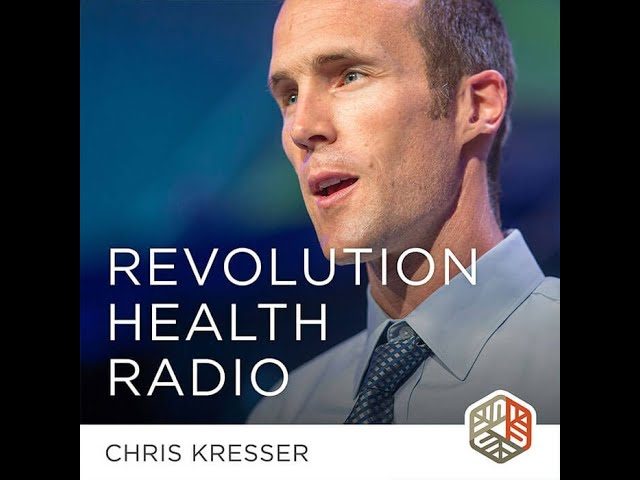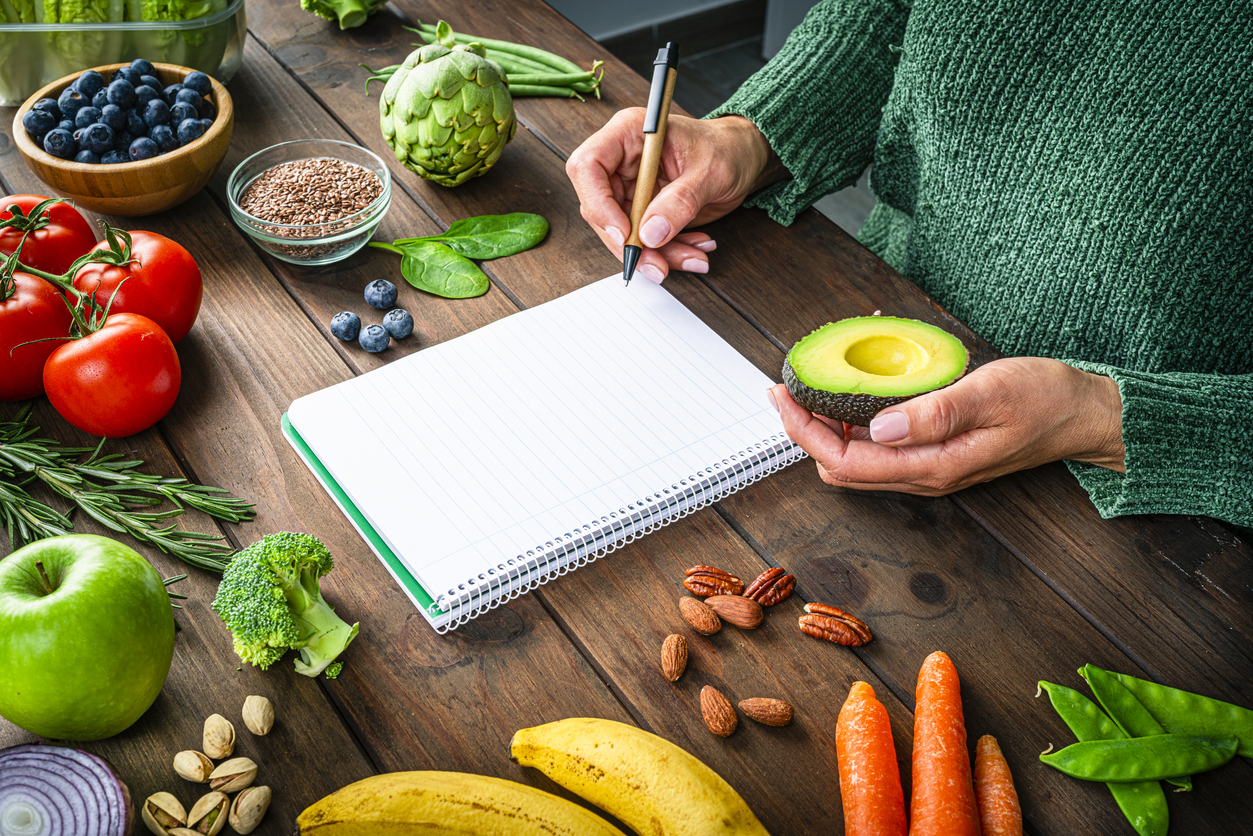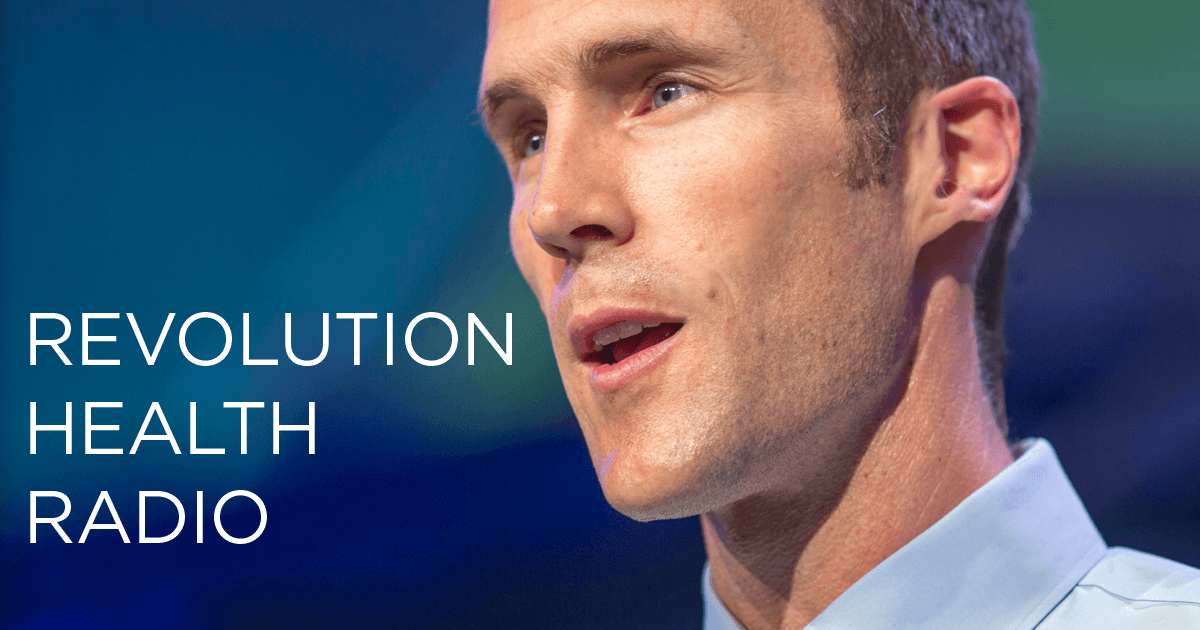
7 Ways to Reduce Anxiety with Lifestyle Changes

Page Contents:
We’re living in uncertain, anxiety-provoking times, as what to expect becomes increasingly unclear. As our global society grapples with monumental health issues, social challenges, and natural disasters, anxiety and anxiety disorders will most likely increase. (3, 4) Yet, feeling less anxious now is important to you. You’re also seeking natural ways to reduce anxiety that are effective and sustainable.
If you’re experiencing increased anxiety, you’re not alone. As our society grapples with monumental issues, finding ways to reduce your anxiety becomes more crucial. Check out this article for seven natural ways to feel less anxious. #healthylifestyle #wellness
What Is Anxiety?
Whereas reducing anxiety naturally has led you to this article, it might help to realize that anxiety is an important and useful emotion. Anxiety is our body’s natural, fight-or-flight response to real or perceived stress (fear, worry, apprehension, nervousness), threats to safety or security, and danger. (5) It’s one of the many important emotions that helped us survive as a species and that continues to alert us today. In certain situations, a little anxiety can be just what we need to perform our best, boost our motivation, and propel us forward in life.
Anxiety is also a complicated and complex emotion to understand because of the range and diversity of risk factors and triggers involved, especially for minorities and people living in oppressed communities. (6, 7, 8, 9) Our unique and individual genetic, biological, physiological, and psychological blueprints; environments; and life experiences manifest into our own personal anxiety template. Layer on lifestyle, which includes nutrition, exercise, sleep, stress, toxins, and social connections, and we begin to understand the complexity of our anxiety and even what aggravates it. (10, 11, 12, 13, 14) Whereas anxiety can present on its own, it can also be a symptom of health-related issues involving inflammation, nutritional deficiencies or sensitivities, blood sugar, sleep and circadian disruption, environment, and lifestyle. (15, 16)
When Anxiety Becomes a Concern
As difficult and challenging as anxiety can be to understand, it is normal to feel occasional anxiety, such as before an important job interview or exam, or during a crisis, catastrophic or traumatic event, or disaster. In fact, without a little anxiety vibrating through our bodies, motivation and momentum might very well be non-existent. However, feeling persistent anxiety can interfere with and reduce quality of life.
Feeling perpetually anxious can erode our self-confidence and have a crippling effect on our health, wellness, and overall quality of life. Yet, stopping or controlling anxiety is not always as simple as surfing the internet for “how to reduce anxiety fast.” If our environment or social climate keeps our mind and body locked in a stress response, feeling anxious is as normal as breathing, and reducing anxiety can be difficult without support. (17) In extreme cases, anxiety could be a signal to seek professional help, which is highly recommended.
For example, ongoing panic attacks or associated, recurring post-traumatic stress disorder symptoms (e.g., reexperiencing traumatic thought, memories, or flashbacks; avoidance of people and places; concerning changes in concentration, thinking, or mood, or patterns of reactivity, irritability, or persistent shame or guilt; sleep disturbances) could be signs of an anxiety disorder. (18) Therefore, it’s important to work with a licensed healthcare provider, mental health professional, complementary and alternative medicine provider, or Functional Medicine practitioner, who can order appropriate lab work and offer accurate assessed diagnoses and treatment options. (19) Furthermore, choose a practitioner who listens, hears you, has expertise with anxiety, and cares about providing individualized care and treatment, and in your case, natural and best ways to reduce anxiety.
For some people, maybe even you, working with a certified health coach who has expertise in natural ways to reduce anxiety could be a beneficial option. (20)
Health coaches are trained and skilled to listen actively and deeply and support their clients with achieving their desired health and wellness goals, or in this case, anxiety relief. Through small measurable steps, support, and accountability, you can feel more at ease, healthy, and well.
Health coaches are also highly skilled at meeting you where you’re at. In other words, we start where you are. For example, ADAPT-Certified Functional Health Coaches are trained specifically in Functional Health and ancestral lifestyle practices that offer a variety of effective and natural ways to reduce anxiety. Therefore, whether you work with a licensed provider or not, partnering with a certified health coach could be a highly worthwhile choice.
If access and affordability to preferred care and treatment options are obstacles, or if you prefer to seek relief on your own, identifying the root cause(s) of anxiety and then experimenting with behavior and lifestyle changes could provide relief. Of course, patience, persistence, and willingness to explore, experiment, and never give up are essential.
How to Reduce Anxiety Naturally
Whether you choose to partner with a practitioner or health coach, or seek relief on your own, below are seven ways to reduce your anxiety using lifestyle changes that are supported by research and could help you reduce anxiety naturally. These seven ways are integrated holistically throughout my health and wellness routines and many of my clients’ routines.
As an ADAPT-Certified Functional Health Coach, my clients and I are partners in their efforts to address anxiety and live healthy and well. We work collaboratively on their health and wellness vision that prioritizes feeling less anxious naturally. Insights gained through lifestyle and environmental assessments and questionnaires expand their health and wellness vision and support their long- and short-term goals. Our weekly sessions facilitate small consistent lifestyle changes and address obstacles they encounter along the way. Whereas my clients are unique and individual in their biological makeup, preferences, and environments, they each achieve noticeable relief and improved quality of life by integrating a combination of these seven evidence-based lifestyle changes. Perhaps they can work for you, too.
1. Eat Real Food
Choosing to eat real food is a natural step to achieving overall health and wellness, including mental health. (21) Real food is just that: real instead of processed and full of artificial ingredients, such as colors, dyes, industrial seed oils, refined sugars, and additives that are not only difficult to pronounce but also harmful to your health and nervous system. Real food is generally nutritionally dense and balanced, colorful, diverse, and seasonal, which provides the body with what it needs to regulate, heal, and thrive. Whereas unique, individual dietary requirements and exceptions exist, eating real food consistently can regulate blood sugar, improve gut health, and reduce inflammation, all of which can reduce anxiety.
Yet, for many of us, eating real food is an evolving process, perhaps even challenging. Depending on the availability of fresh, seasonal food, time, skills, budget, and understanding, eating real food may seem daunting and even anxiety-provoking. However, eating real does not have to be an all-or-nothing endeavor. As I often ask my clients, “Where might you start? What feels possible?”
For some of us, this might mean cleaning out our kitchens and restocking our cupboards and refrigerators with fresh, raw, organic foods. Others of us may need to start with small, affordable, and practical steps, such as switching industrial seed oils for a quality bottle of olive oil, opting for real butter or ghee instead of artificial margarine or processed spreads, or replacing soda with water. These steps alone can reduce inflammation and ease anxiety. (22, 23)
In addition to eating real food, eliminating, or at least decreasing, caffeine, alcohol, and sugar can also affect anxiety. Caffeine and sugar are stimulants, and even though we might think they calm us down, their effects on the body are quite the opposite. Similarly, alcohol is a depressant, making it appear as a reasonable cure for anxiety. However, using or overusing alcohol to manage anxiety can lead to a variety of health issues, and even increase anxiety. These common, popular substances can be challenging to consider giving up, which is another reason to seek the support of a health coach when deciding to make significant, even difficult, lifestyle changes. We’re trained and skilled at supporting you every step of the way.
If you’re interested in exploring the relationship between nutrition and emotional health deeper, consider partnering with a Functional Health nutritionist or practitioner who specializes in addressing anxiety-related nutrient deficiencies, imbalances, sensitivities, or intolerances. For example, whereas increasing carbohydrates and eating plenty of protein and fat can help reduce anxiety, eating too much protein can cause anxiety. In addition, probiotics can support improved digestion and gut health that can reduce anxiety.
Likewise, specific supplements (e.g., magnesium, L-theanine, gamma-aminobutyric acid (GABA), taurine, cannabidiol, or CBD, probiotics) have been shown to affect anxiety. However, natural supplements, including herbs and even essential oils, are powerful substances, and although they may be viewed as “natural” ways to reduce anxiety, experimenting is best done in partnership with a licensed professional.
2. Relax More
Scheduling and committing to regular relaxation time to unwind and calm the mind and body are essential for reducing anxiety. Our minds and bodies hustle and hurry on autopilot most days with little time given to checking in with how we’re feeling or taking a moment for a few deep breaths. Living persistently upregulated and on high alert activates the body’s fight-or-flight hormones that cause anxiety. Whereas these hormones are important for survival and alerting us to danger, flooding our bodies with fight or flight hormones too often can be toxic and cause a number of health issues.
Even if we’re clear that regular relaxation can reduce anxiety, many of us resist taking time to relax. Driven by the belief that there’s “too much to do and too little time,” we run from one demand and responsibility to another as anxious and overwhelmed as ever. Doing less is considered a luxury, selfish, or irresponsible, especially during unpredictable, uncertain, and unraveling economic times. For example, if you’re juggling multiple jobs, home-schooling children, worrying about where the next meal or rent payment will come from or if you’re going to lose your job or test positive for COVID-19, the question, “How do I relax my mind?” can seem impossible to fathom. (24)
Yet, the research is clear on the positive effects of relaxation on the mind, body, and nervous system. Specifically, meditation has been shown to change brain chemistry and affect the area of the brain (amygdala) that processes emotions, such as anxiety. (25) And you don’t need to sit in a lotus pose for 90 minutes to receive the benefits of meditation. As little as three to five minutes a day of meditation, progressive muscle relaxation, and breathing techniques can reduce anxiety. (26)
As a former non-meditator, I started with 10 minutes per day using the Calm app and started noticing a difference within a few months. Today and years later, meditation is one of my favorite natural ways to reduce anxiety. Meditation also consistently supports my clients who are embarking on reducing their own anxiety. Even the clients who are the most ambivalent meditators, like I was, share noticeable relief after a few weeks of meditating. With my support, they feel empowered to give it try, experiment, and find their meditating sweet spot that invariably decreases their anxiety.
If anxiety has a tight grip on you and you’re wondering, “How can I reduce anxiety fast?” breathing mindfully, slowly, and deeply is one of the quickest ways to ease anxiety. Mindful breathing directs our attention to the present moment and connects our mind and body to the movement of breathing instead of our worries and anxiety. A couple of the most effective breathing techniques for anxiety are diaphragmatic breathing and belly breathing, or 4-7-8 breathing. (27) Both breathing techniques are easy to learn, simple to do, and convenient. In other words, breathing techniques such as these can be done just about anywhere at any time you feel anxiety or even panic. Of course, when caught in the grip of extreme anxiety or panic, please reach out to a trusted healthcare provider for support and assistance.
If meditation and breathing just aren’t your thing or you’re not ready to commit, other relaxation options are available. Any enjoyable activity that connects your mind and body, and transports you into the present can produce a calming effect on the nervous system. Options such as working on art and creating, enjoying hobbies, listening to music, singing, playing an instrument, writing, playing games or team sports, playing with your children or your pet, and even movement and exercise, such as meditative walks in nature or yoga, combine the effects of movement and meditation into what is commonly referred to as “meditation in motion.” The key is to give yourself permission to experiment with relaxing, meditative options. Working with a health coach can help.
ADAPT health coaches are trained in mindfulness and how to integrate mindfulness practices such as meditation, breathing, and relaxation techniques into our lifestyles. As part of our training, we are required to start a meditation practice, journal, and unplug from technology regularly. The practice of relaxation is deeply embedded into how ADAPT health coaches move through life, and we believe in its positive effects, even with reducing anxiety. Find out what else coaches learn in the ADAPT Health Coach Training Program.
3. Move Often
As humans, we were born to move, even run. (28) Regular movement and exercise is beneficial and can improve sleep, health and well-being, cognitive functioning, self-esteem, and mood, which together can reduce anxiety. Of course, a variety of exercise and movement options exist. It’s important to choose movement or exercise that you enjoy, that you are willing to commit to doing regularly, and that helps reduce anxiety. In other words, whereas rock climbing is a fabulous form of exercise, high-adventure forms of movement could actually increase anxiety. Again, it depends and is a personal preference.
Mind-body movement such as yoga, tai chi, or qigong are effective types of movement for reducing anxiety. (29) These meditation-in-motion or mind-body practices connect the mind, body, and breathing in a way that calms the nervous system while also improving physical health. You get the benefits of moving and relaxing at the same time.
Other types of anxiety-relieving movement and exercise include:
- Jogging or walks in nature
- Swimming
- Rowing
- Biking
- Dancing
Studies suggest that vigorous exercise several times a week can help reduce anxiety. Likewise, studies are reporting positive effects of strength or resistance training on anxiety. (30) Again, what’s most important is that you move consistently and regularly, and enjoy it and make it fun.
If you are new to moving your body regularly or feel ambivalent about scheduling time to exercise, working with a health coach can get you over the movement and exercise hump. It did for me! In my efforts to integrate more strength and resistance training into my movement options, I worked with a health coach who specializes in strength and weight training. She helped me create a strength training plan that I enjoyed, was simple and easy to integrate into my schedule, and was fun and rewarding. When obstacles arose, her skilled coaching enabled me to see possibilities that I had not considered. Through the coaching process, I learned more about myself, grew more confident, and established a flexible strength training routine that continues to support me today, even when access to my local gym wasn’t possible.
If scheduling a health coaching session is not possible yet, consider experimenting with movements that you love and can commit to doing several times a week for 30 minutes. If 30 minutes is too much, start with five minutes and increase the time incrementally until you reach the minimum recommendation of 30 minutes five times a week. (31) You might explore keeping a journal or log of how you feel before, during, and after exercising, and if you notice any changes to anxiety.
4. Sleep Better
When it comes to health and wellness priorities, sleep is important for several reasons, including mental and emotional health. And yet, as a society, we continue to sacrifice sleep. To meet the demands of modern life, we stay up late working, studying, caring for family, and squeezing in downtime. However, existing on less than six hours of sleep a night over time can have detrimental effects on our health and wellness, not to mention cause, and even aggravate, anxiety. (32) In fact, quality of sleep is associated with levels of anxiety. (33) Even if you eat well, move your body regularly, and relax often, a lack of sleep has negative effects on your health, including anxiety.
One of the best ways to sleep better and reduce anxiety is to experiment with a collection of lifestyle changes known to improve sleep, such as:
- Regulating your sleep schedule
- Adjusting the temperature in your bedroom
- Making sure that the bedroom is completely dark
- Using cotton or breathable sheets
- Wearing loose-fitting, cool, comfortable sleepwear
- Limiting light and screen exposure at least one hour before going to sleep
- Not eating a heavy meal before going to sleep
- Taking a warm bath or shower before bedtime
- Reducing caffeine and alcohol
- Eating real food
- Relaxing, especially before bedtime
- Light reading or writing in a journal
- Moving more throughout the day
Since improving my sleep habits was my goal this year, I coached myself on how and where I could increase my sleep hygiene and reduce my anxiety even more. I started with regulating my sleep schedule and going to bed earlier. Keep in mind that going to bed is different from going to sleep, so I set a reminder to nudge me into bed about 30 to 45 minutes before turning out the lights. The schedule gave me time to unwind, do some light stretching, read (without screens), and even meditate before going to sleep. Within days, I noticed an improvement in how I felt in the morning and my energy throughout the day. Many of my clients notice similar benefits (and less anxiety) from getting into bed, going to sleep earlier, and regulating their sleep schedules.
As always, start where you are and with what is simplest and easiest to implement consistently. For example, if you have young children at home, regulating your sleep schedule might not be the best place to start. So then, how could you start? Where might you be willing to make adjustments? What’s possible? These are questions that I pose to clients that you could ask yourself as you strive to sleep better and feel calmer.
5. Reduce Environmental Toxins
Environmental toxins (e.g., products, substances, food, energy, physical, social, communities, institutions, systems, and policies) can negatively affect how our minds and bodies function, which can contribute to anxiety. (34) It can feel overwhelming to look around and notice the chemicals and toxins around us that we breathe, ingest, and touch daily. Talk about anxiety-provoking! Again, start where you are, and ask yourself, “What’s possible? What step could I take to reduce environmental toxins?”
Whereas some environmental toxins can be more challenging to eliminate than others, such as those out of our control, reducing some environmental toxins is possible and completely within our control. Again, it’s a matter of starting where you are and where you can. A simple place to start is with cleaning supplies. The internet is abundant with natural DIY cleaning recipes that you can whip up at a fraction of the cost of popular brands. Basic favorites include white vinegar, baking soda, and lemons.
Additional detoxing steps include:
- Drinking filtered water instead of bottled water that contains chemicals and bacteria
- Eating local and organic when possible to avoid consuming harmful chemicals and pesticides
- Limiting screen time and exposure to artificial light
- Switching toxic cleaning products, including bath, body, and beauty products, for safer DIY or natural products. A tub of organic coconut oil is a solid choice for cooking, consuming, and using on your skin and hair.
6. Get Connected
As humans, we’re wired for connection. Social connection is good for our mental and emotional well-being and enhances our physical health. Research suggests that healthy social connections improve quality of life and longevity, regulate hormones, decrease the risk of disease, and reduce anxiety. Specifically, social connection lowers cortisol (stress hormone) and increases oxytocin (the love hormone), and we could all use more love and less stress in our life! As the saying goes, “We’re better together.”
Yet, isolation and disconnection are more common than ever, especially with the increased use of screens, devices, social media, and safety precautions of social distancing. However, the positive effects of eye-to-eye validation and touch cannot be replaced by screens, surfing the internet, or scrolling social media stories, and “liking.” Our health, wellness, and anxiety relief goals depend on the positive effects of connection.
Cultivating new or reigniting connections could begin with:
- Inviting a neighbor for a walk
- Calling an old friend or two
- Joining an in-person or virtual book club
- Meeting a group of friends for breakfast or lunch
- Volunteering
- Inviting a few of your favorite friends for a spa weekend or spiritual retreat
All of these activities can be done in-person with precautions or through video conferencing with creativity.
If you’d prefer to increase the connections you have in your own home, instead of everyone retreating to their screens and devices after dinner, schedule direct family time to sit together and catch up, read a story to your children, or plan a family game night.
If you live with a partner, schedule a weekly date night or coffee time in the morning. Plan morning, evening, or weekend walks, and hold hands. Snuggle on the couch after the kids have gone to bed or opt for giving each other a relaxing massage. Most importantly, connect!
7. Manage Your Mind
No matter how dedicated you are to eating real food, stressing less, moving more, sleeping better, detoxing, and cultivating quality connections, if your mind is overflowing with negative thoughts and limiting beliefs, you are probably going to feel anxious. Certainly, anxiety can arise for many reasons. However, it’s commonly caused and aggravated by what we think and believe.
If you’re wondering, “Is overthinking a sign of anxiety?” it definitely could be. Overthinking, ruminating, and mulling over the same, anxiety-provoking thoughts repeatedly could be a sign of anxiety or, at the very least, make anxiety worse, while also interfering with sleep, relaxation, social connections, and more.
Not that we’re expected to think positive thoughts all the time. There are times when we will feel worried and anxious. We will all experience devastating, painful, and traumatic circumstances that are completely out of our control. We’re going to feel anxious, even afraid. This is part of the human experience. However, staying stuck in a repetitive negative thought loop will not change the circumstance or solve the problem—quite the opposite, as I’m sure you’ve experienced. What is in our control is how we respond to circumstances, which starts with what we choose to think and believe.
Managing our mind begins with gaining perspective, stepping back from the circumstance, and becoming the curious, compassionate observer of our mind. Taking a balcony seat and watching how we move through the world can help us see clearly how much our mind is involved in how we feel and act. Simply observing our mind can interrupt the negative thought patterns that cause us to feel anxious. For example, we begin to see how repeatedly thinking negative thoughts causes us to feel anxious, which then drives a variety of behaviors that most likely causes us to feel even more anxious (e.g., overeating, overdrinking, isolating, reacting).
Writing down the thoughts and questioning them for accuracy can also be helpful. Are the thoughts true? Are they absolutely true? In most cases, they’re not. They’re simply thinking habits tied to old stories and beliefs that are not solving anything, and only causing more anxiety.
If the thoughts running through your mind are questions (i.e., “What if …?”), which is common with anxiety, answering the questions will reveal more negative thoughts and limiting beliefs. By answering the question, “What if the test comes back positive?” you identify the root thoughts causing anxiety. From there, you can begin to question their accuracy, see clearly how they’re affecting you, and decide if you want to keep them.
Bottom line, many natural ways to reduce anxiety exist. What’s key is being open and willing to experiment with what works best and provides the most relief. My own personal relationship with reducing anxiety includes a number of Functional Health, ancestral health, and environmental supports, such as the seven ways I’ve shared, and alternative treatments, such as acupuncture and massage. Reducing anxiety naturally depends on committing to a consistent practice of exploring and experimenting until you find your sweet spot.
However, if anxiety is interfering with your quality of life, then maybe it’s time to reach out for support from a trusted healthcare provider, mental health professional, or skilled health coach, preferably with expertise in addressing anxiety naturally.
Getting Help with Anxiety
Adapt180 Health™ is one option to consider if you’ve run the gamut of healthcare and treatment options. It’s a virtual, membership-based health transformation service dedicated to helping people solve root cause issues interfering with their health, wellness, and quality of life. When you sign up for a membership, you are assigned to a collaborative Functional Medicine care team that includes a practitioner, a nutritionist, a health coach, and mindfulness and fitness experts who partner with you to address the underlying causes of your anxiety and create a sustainable plan for you to heal, recover, and thrive. Find out more about becoming a member of Adapt180 Health™.
Working with an ADAPT-Certified Functional Health Coach is another beneficial option for addressing anxiety-related health and wellness issues. Our directory of certified coaches lists a number of qualified and experienced health coaches who can assist you with implementing and creating a wellness vision for reducing anxiety and even assist you with introducing the seven ways to reduce anxiety to your lifestyle and creating personalized, sustainable habits to help you reduce anxiety, feel better, and live well.






